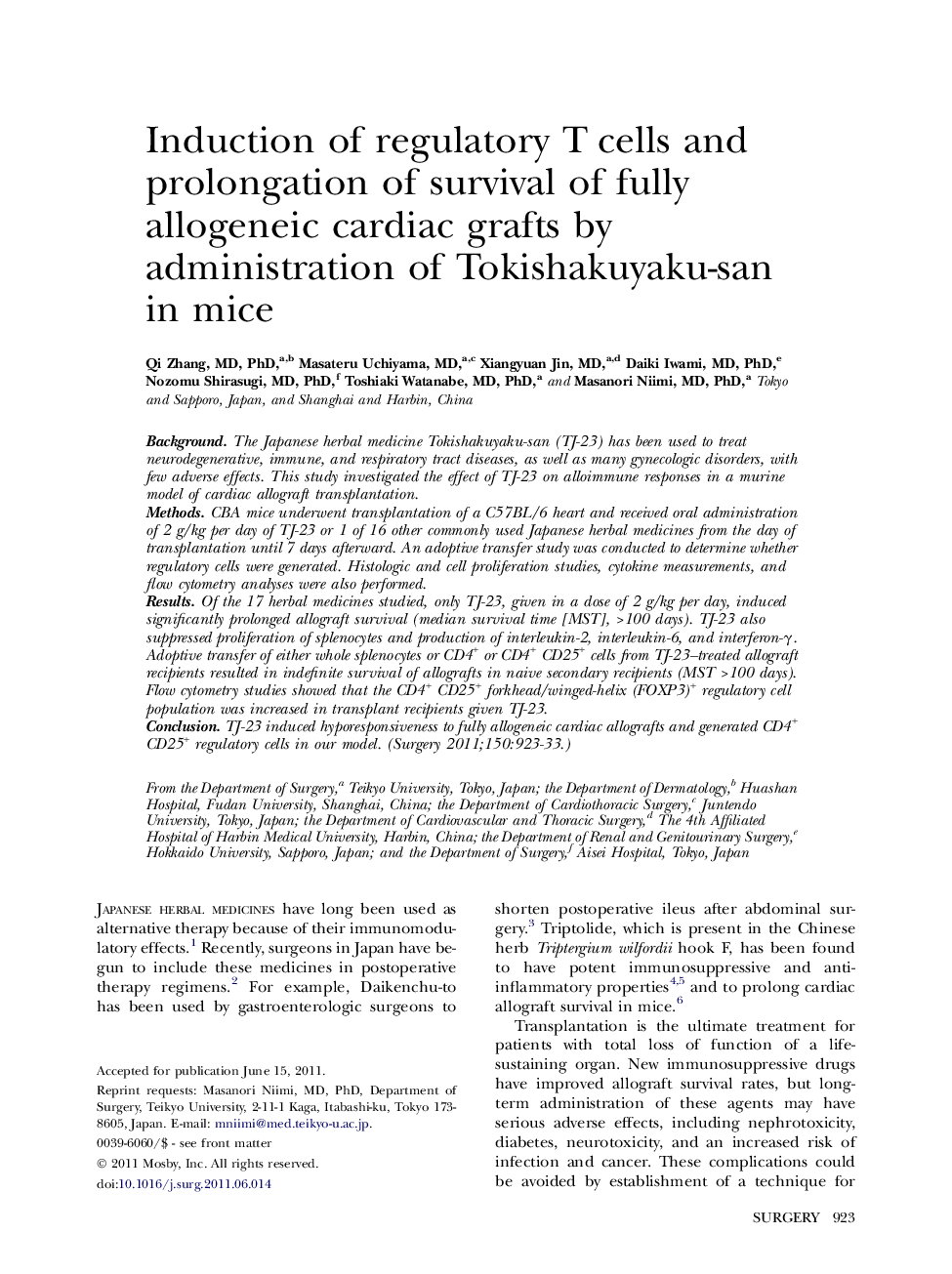| Article ID | Journal | Published Year | Pages | File Type |
|---|---|---|---|---|
| 4307891 | Surgery | 2011 | 11 Pages |
BackgroundThe Japanese herbal medicine Tokishakuyaku-san (TJ-23) has been used to treat neurodegenerative, immune, and respiratory tract diseases, as well as many gynecologic disorders, with few adverse effects. This study investigated the effect of TJ-23 on alloimmune responses in a murine model of cardiac allograft transplantation.MethodsCBA mice underwent transplantation of a C57BL/6 heart and received oral administration of 2 g/kg per day of TJ-23 or 1 of 16 other commonly used Japanese herbal medicines from the day of transplantation until 7 days afterward. An adoptive transfer study was conducted to determine whether regulatory cells were generated. Histologic and cell proliferation studies, cytokine measurements, and flow cytometry analyses were also performed.ResultsOf the 17 herbal medicines studied, only TJ-23, given in a dose of 2 g/kg per day, induced significantly prolonged allograft survival (median survival time [MST], >100 days). TJ-23 also suppressed proliferation of splenocytes and production of interleukin-2, interleukin-6, and interferon-γ. Adoptive transfer of either whole splenocytes or CD4+ or CD4+ CD25+ cells from TJ-23–treated allograft recipients resulted in indefinite survival of allografts in naive secondary recipients (MST >100 days). Flow cytometry studies showed that the CD4+ CD25+ forkhead/winged-helix (FOXP3)+ regulatory cell population was increased in transplant recipients given TJ-23.ConclusionTJ-23 induced hyporesponsiveness to fully allogeneic cardiac allografts and generated CD4+ CD25+ regulatory cells in our model.
